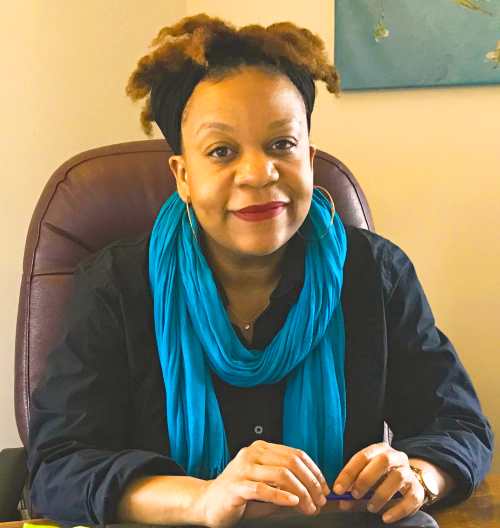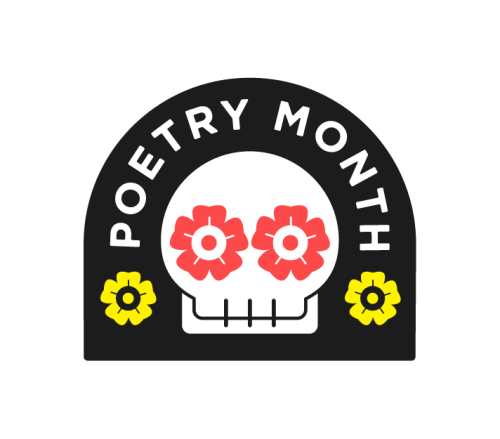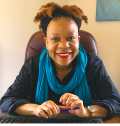It looks like you've stumbled upon a page meant to be read by our code instead of viewed directly. You're probably looking for this page.
Poetry Stays Woke: It's Not Only Alive and Well, But Undergoing a Renaissance
Poetry is always making a comeback. Resurrecting itself time and again from what seems like a tired and misinformed age-old “Is poetry dead?” question. Through it all, poetry remains the underdog, the art of reason and rectify in a world moving too fast and too furious.

Parneshia Jones: 'Despite forgetting or misplacing our humanity at times, poetry helps to restore faith in the emotional connections that remind us that we are human.'

I’m just going to say it. Don’t try to stop me. It needs to be heard, shared, and acknowledged. Poetry is the most woke thing circulating in our world now. There! Now, don’t we all feel better? Here’s the truth: poetry has always been woke—never taking a catnap or an intermission through our convoluted evolution. Since the days of Homer, Sappho, Vyāsa, doing epic rifts on the pre-B.C. world, poetry has artistically chronicled his/herstory stanzas since the hieroglyphic metaphors of our ancestors.
How lucky we are that despite forgetting or misplacing our humanity at times, poetry helps to restore faith in the emotional connections that remind us that we are human, no matter how much of our lives is downloadable. Poetry is not only alive and well, it’s having a full-blown, twenty-first century renaissance.
Here we are, in the year of Gwendolyn Brooks’ Centennial and Tyehimba Jess has won the Pulitzer Prize for Poetry, Patricia Spears Jones has won the Jackson Poetry Prize, and new and innovative approaches to verse are giving poetry new found audiences and vessels. New collections have dropped like No Dictionary of a Living Tongue (Nightboat Books) by Duriel Harris, which presents a multidimensional exploration of what binds and breaks us. The pages can hardly contain her verse, folding out from the binding, lucent and fierce.
Poet, Alex Dimitrov refuses to overlook the ironic matrices we create for ourselves with his second anticipated collection, Together and By Ourselves (Copper Canyon). We have never been more connected and yet why do so many of us feel alone? That’s the thing about poetry; it acknowledges our contradictions and helps the world make some kind of peace with it.
Patricia Smith and Danez Smith (no relation), Smiths squared to the highest poetic powers, are conquerors and keepers of both page and stage. They have, without blinking, put society’s collective heads under the bright lights of interrogating injustices—forcing us to see the ludicrous, inherited, and systematic reasons for our most monstrous ways.
The breaches of the black body pour out of combustible language in Incendiary Art (Northwestern/TriQuarterly Books) and Don’t Call Us Dead (Graywolf), detonating the racial and social violations we’ve struggled with for so long. No one gets to turn away this time. No one leaves unscathed. It’s not pretty, nor kind. Its truth! We all need it—head on—if we ever hope to overcome it.
Tweet-Insta-Live-Snap- this, that, and the other. A “nothing is off limits” kind of world requires us to listen for the new planets and voices forming in the poetry world. The new generation of galaxy voices like Nabilah Lovelace and Aziza Barnes, co-creators of the Conversation Series. This thoughtful collective mashup of literature, performance, visual and migration, presented in old-school colloquium style is dedicated to, “bridging conversations between inter-regional Blackness & discussing what a Black Mecca can look like in the United States.”
And have you heard of Paul Tran, the 2017 Nuyorican Poets Cafe Grand Slam Champion? Well, now you have and you’re welcome! These poets, along with the steady hands and wide-verse eyes of Cynthia Dewi Oka, Duy Doan, Matthew Olzmann, Ladan Osman and more, engage in ways I’ve never seen happen in poetry.
Trending is a thing. How we want to be remember is even more of a thing. I say this because poetry is the immortal art that archives the voices that should be heard forever. Pablo Neruda shows that the ancestors will always have something to say. Neruda’s recently unearthed poems, Then Come Back: the Lost Neruda Poems (Copper Canyon), are poetic artifacts taken from napkins, playbills and notebooks the “ambassador of love” kept in his early years. It was one of the most anticipated poetry collections in the last ten years.
Poetry creates legacy when the longevity of life is cut so short. Max Ritvo’s Four Reincarnations (Milkweed Editions), Jake Adam York’s Abide (Southern Illinois University Press) and Brett Foster’s, The Garbage Eater (Northwestern/TriQuarterly Books), allow us to pay homage to these poets who were just dipping their fingers into their respected zeniths before they took flight; but their words are still here. Their words are still here.
And just in case you haven’t noticed, poetry has gone executive. Poets are the new Jeffersons, moving on up into positions of power—taking poetic license over how the art is distributed and sustained in residencies and boardrooms.
Anchors like Cave Canem, National Endowment for the Arts, the Humanities; the Lannan Foundation, Kudiman, and countless others are the cultural backbones stepping up, even when the deck is stacked against them, even when some of them are less than one-hundredth of one percent of the federal budget, they continue to prove time and again that art, specifically poetry, is important.
A poet, Kevin Young, was appointed director of the Schomburg Center for Research in Black Culture. Dr. Elizabeth Alexander is holding down the fort as director of creativity and free expression at the Ford Foundation, and Fellow turned executive director, Nicole Sealey is at the helm of the Cave Canem Foundation. Putting cultural poet workers in place only heighten the public’s senses to the art. And just like there are tree huggers, there are poetry huggers like Lisa Lucas, whom I can’t confirm is a poet—but I know has a Jones for poetry and for that we love her as she has gracefully taken the executive director reins at the National Book Foundation.
These new and seasoned champions of literature join the ranks with steadfast literary warriors like Jen Benka, Alice Quinn, and Lee Breccetti, executive directors on the front lines of the Academy of American Poets, Poetry Society of America and Poets House respectively. And speaking of innovation, leave it to the Poetry Foundation/Poetry Magazine, Louder Than a Bomb, I, Too Arts Collective, DreamYard, and the Guid Complex, all creating new and exciting ways for poetry to reach young people and be in global dialogue.
That’s right …WOKE! In the words of Heatwave, “Always and forever,” poetry is holding us together, passing out empathy—in iambic pentameter, day and night. A special THANK YOU goes to the publishers, publications, reviewers, bookstores, libraries, and open mic cafés who support poetry. Thank you to the readers, the lovers of meter and metaphors. And a grateful curtsey to the poets, doing the work through it all, awards, 4 a.m. bursts of inspiration, rejection letters and the noisy espresso machine in the background while you try and recite your piece of survival for a crowd of two or two hundred. Thank you for staying woke enough to write the next line.

Parneshia Jones is the author of Vessel: Poems (Milkweed Editions), winner of the Midwest Book Award. She currently holds positions as Sales and Community Outreach Manager and Poetry Editor at Northwestern University Press. You cal follow her on Twitter, and Instagram.
Parneshia Jones